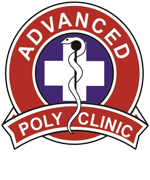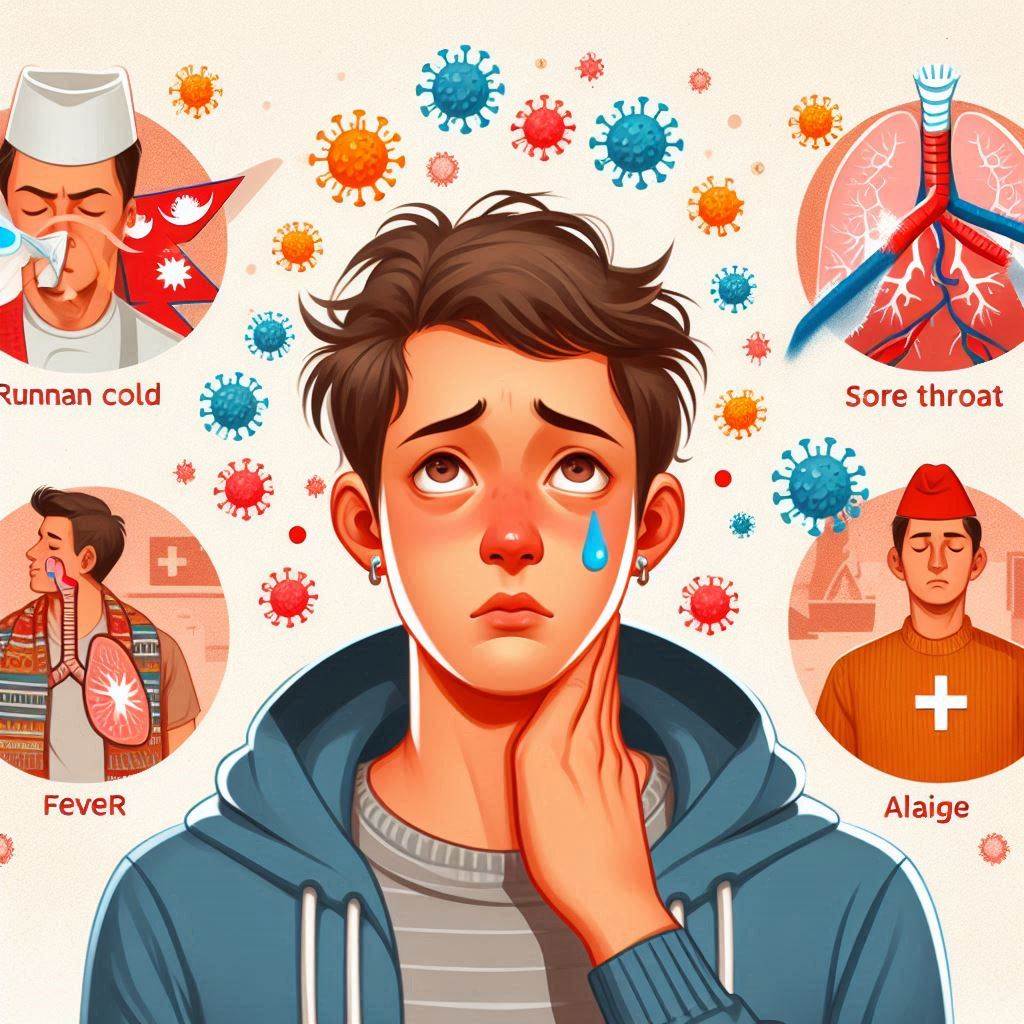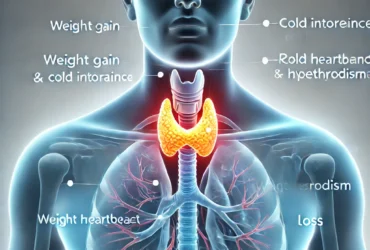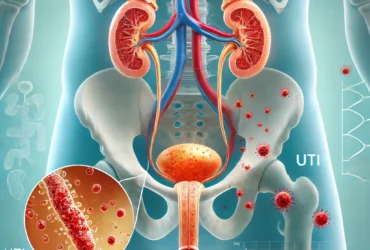What You Need to Know
Introduction
Upper Respiratory Tract Infections (URTI), Common Cold, and the Flu are widespread in Nepal, especially during colder months or rainy seasons. These illnesses are caused by viruses and can lead to discomfort, but they are generally treatable with proper care.
Symptoms
- Common Cold: Often starts with a runny or stuffy nose, sneezing, mild cough, sore throat, and low-grade fever.
- Flu: Typically more severe, with symptoms like high fever, muscle aches, chills, fatigue, headache, and a dry cough.
- URTI: Includes symptoms like sore throat, nasal congestion, and cough, with some cases affecting the sinuses or ears.
Causes and Transmission
- Common Cold: Caused by numerous viruses – most common is rhinoviruses, that spread through droplets from sneezing or coughing.
- Flu: Caused by the influenza virus and is highly contagious, especially during outbreaks or seasonal changes.
- URTI: Can be viral (such as adenoviruses) or bacterial (such as streptococcus in cases of strep throat), though viruses are more common.
Prevention
- Hygiene: Wash hands frequently with soap and water, use hand sanitizers when unavailable, and cover your mouth/nose when coughing or sneezing.
- Flu Vaccination: A flu vaccine is highly recommended, particularly for the elderly, children, pregnant women, and those with pre-existing health conditions.
- Avoid Close Contact: Stay away from infected people and practice good hygiene to reduce the risk of catching or spreading the illness.
Treatment
- Rest: Adequate rest helps the immune system fight off infections.
- Hydration: Drinking fluids like water, herbal teas, or soups can help soothe the throat and prevent dehydration.
- Over-the-Counter Medications: Non-prescription medications such as paracetamol or ibuprofen can relieve symptoms like fever and body aches. Decongestants can help with nasal congestion. Typical treatment in Nepal involves: 1. Tab Rhinex 3 times a day for 5 days. 2.Tab. Flexon if fever is more than 101 degrees Fahrenheit. 3. Nasivion Nasal drops.
- Antibiotics: Not recommended for viral infections like the cold or flu but may be prescribed if a bacterial infection is diagnosed.
When to See a doctor?
- Flu-like Symptoms: If symptoms worsen or you experience difficulty breathing, chest pain, severe headache, or a persistent high fever for more than three days.
- Risk Groups: Elderly individuals, children, pregnant women, and those with weakened immune systems should consult a doctor at the onset of symptoms.
- Persistent Symptoms: If cold or flu symptoms last beyond 7-10 days, it could indicate a complication like a secondary bacterial infection (e.g., pneumonia or sinusitis).
Conclusion
While most cases of URTI, common cold, and flu can be managed at home with proper care, it’s essential to remain vigilant. Preventive measures like good hygiene, vaccination, and early medical intervention can help reduce the risk of complications. If you’re unsure about your symptoms or need advice, contact our clinic for guidance. We’re here to help you stay healthy throughout the year.
📞 01-4531078 or 01-4543386






